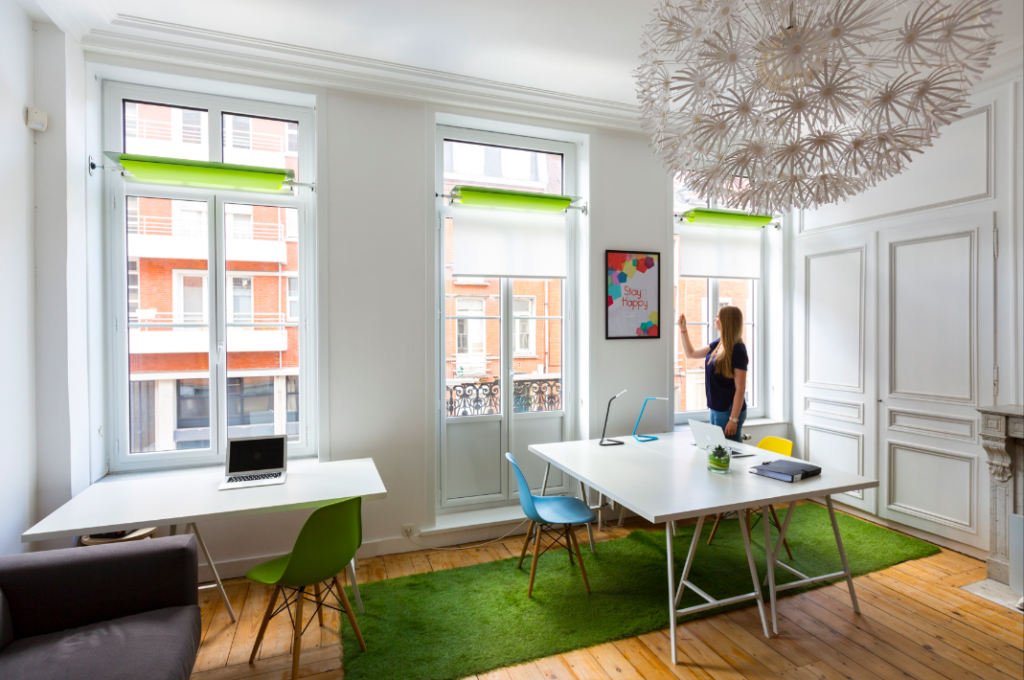
Adopting an eco-responsible lifestyle means acting in the interest of the environment and the planet by reducing energy consumption as much as possible. One of the advantages of eco-responsibility is that it can be demonstrated at any time, whether at home or at work.
Eco-responsibility in the office is increasingly encouraged for a simple and good reason : offices account for 25% of energy consumption in the tertiary sector in France. Thus, a little over 200 million m² of office space to be heated each year. Taking these figures into account, it is clear that we must now learn to control our energy consumption even when we are working. When you move into your new premises, it is therefore essential to think about reducing your energy loss.
Opting for economical electricity supply
Notify EDF of your change of address
When you leave your old premises, you must inform your electricity supplier of your change of address, even if you do not intend to change it. Whether you are a customer of EDF, Engie or any other supplier, the procedure for changing your address is the same. A change of address implies the termination of an existing contract and the subscription of a new one. Indeed, each meter must be associated with a single contract, which is why a change of address, and therefore of meter, requires the subscription to a new offer.
To change your address, you must therefore cancel your old contract, take a final meter reading and finally pay the last bill. Since 2007, energy contracts are non-binding and can therefore be terminated at any time. There are no termination fees or notice periods.
Contact your supplier can be made by phone or directly online. A few documents are required to process your change of address request:
- Your name and surname
- The new address of your premises
- Meter reading for your new premises
- The name of the former tenant of the premises
- The meter reading of your old premises
- The address of the former premises
- A GNI
Benefit from electricity at the best rate
By choosing the cheapest electricity supplier, you are already taking a step towards reducing your bill. To find this supplier, all you have to do is compare the different offers and get to know a little bit about how the energy market works.
Suppliers are differentiated by separating them into two categories: historical suppliers and alternative suppliers. The historical suppliers are those who had a monopoly before 2007, namely EDF (for electricity) and Engie (for gas). Alternative suppliers, such as Total Direct Energie or Eni, arrived after the market was opened up.
Historical suppliers dominate the energy sector. They are required to offer the Regulated Tariff in Force set by the state. To adapt to competition, their offers are evolving. EDF and Engie also offer tariffs based on market fluctuations that have proved favourable in recent years. To take market share, alternative suppliers offer competitive or even aggressive offers (to be looked at closely). Other suppliers such as EkWateur specialize in clean energy. To see more clearly in the different offers here is an online tool made by Papernest to get the best electricity tarif.
How to improve the energy performance of its premises
How you make your premises more eco-friendly will depend on how you use them. For offices, the main concern is not to heat the room too much in the winter and not to cool it too much in the summer. In fact, lowering the heating temperature by a single degree can save 30 to 40% in energy costs.
If you use computers, make sure you turn them off when you leave (do not leave them in standby), as well as all the lights. You should also use laptops, which use much less energy than desktop computers.
In the case of a room that serves as a warehouse or storage area, it is not necessary to turn the heating up fully. Areas that are unoccupied or with little traffic do not need to be heated as much as office space. To improve your knowledge in this area, visit the Ademe website by clicking here.





